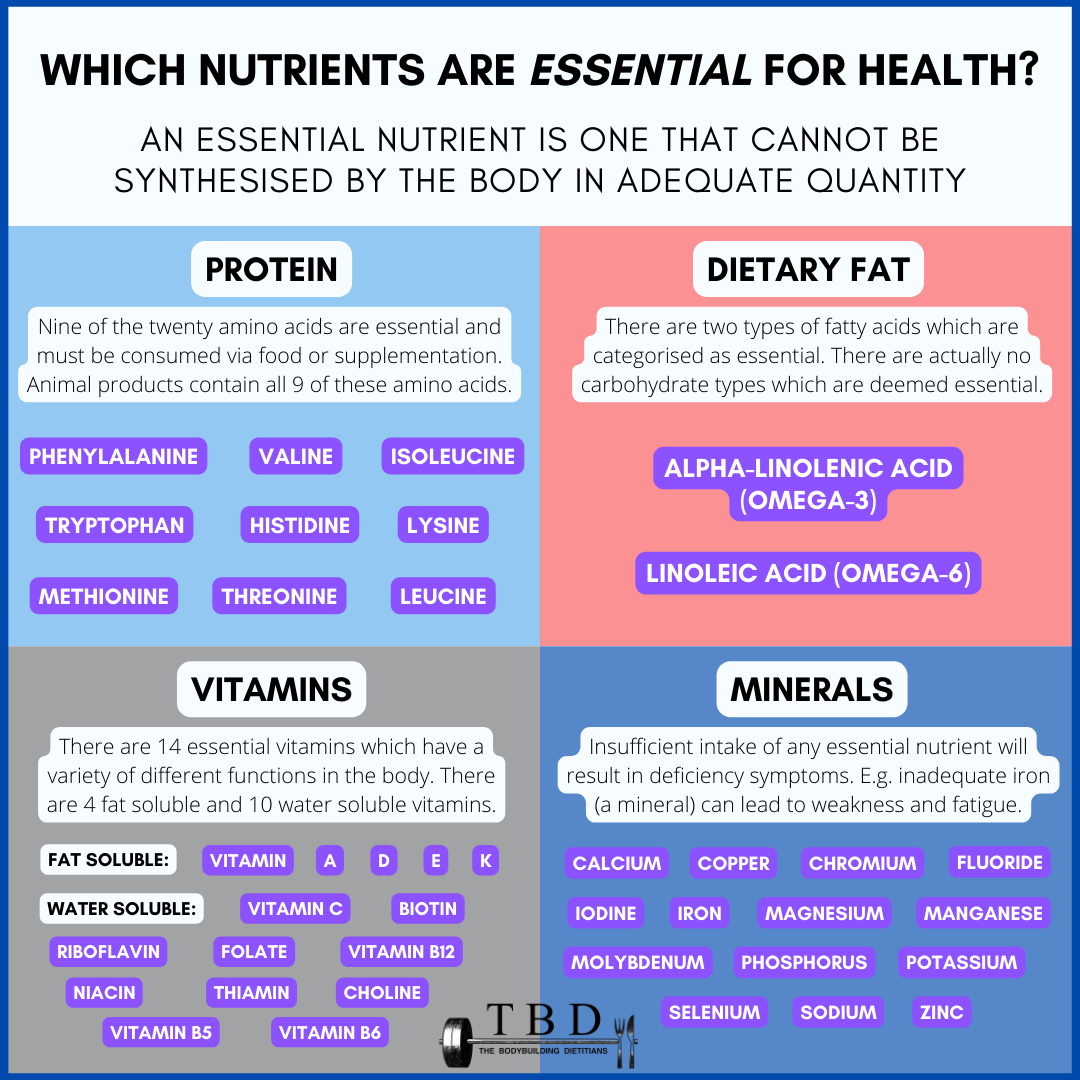Nutrients are obtained from naturally occurring sources in the diet, the environment, fortified foods, and supplementation. With this, nutrients are considered essential if the human body is unable to synthesise them, or cannot synthesis them in an adequate quantity to support health demands. For example, the body is unable to synthesis the amino acid leucine or the fatty acids EPA and DHA. However, it can synthesise glutamic acid, and monounsaturated and saturated fatty acids.
Most individuals are encouraged to take a “food first” approach to meet their nutrient requirements. However, the restriction of certain food groups, living in certain geographical locations, or having health requirements that demand a surplus of a specific nutrient is when fortified products or supplementation can be incredibly helpful.
Below are a few circumstances where supplementation of specific nutrients should be considered:
▪️Lack of sunlight exposure - Vitamin D
▪️Lack of crops grown in iodised soil - iodised table salt or iodine supplementation
▪️Limited red meat intake - iron supplementation or iron infusions
▪️Limited intake of animal products - Vitamin B12 and Zinc
▪️Limited intake of dairy - Calcium (fortified products or supplementation)
▪️Limited intake of fatty fish or oily seafood - Omega 3 fish or algae oil supplements
▪️Pregnant woman - Folic Acid
▪️Those concerned about stimulating MPS on a plant-based diet - Leucine and/or EAA complexes
Carbohydrates aren’t actually an essential nutrient, despite glucose being essential for survival (to regulate blood glucose levels and provide energy for the central nervous system). This is because the the body can synthesise glucose from amino acids and the glycerol head of fatty acids. However, this doesn’t suggest that it’s not encouraged to consume carbohydrate-containing foods (such as fruits, vegetables, and whole grains) as these provide essential nutrients (e.g. Vitamins A, C, E, K, B-complex vitamins, potassium, magnesium and many others).
How can you know whether you’re meeting your essential nutrient requirements?
🔹Blood work
🔹Consult with a dietitian for a comprehensive dietary analysis
🔹Apps such as chronometer
